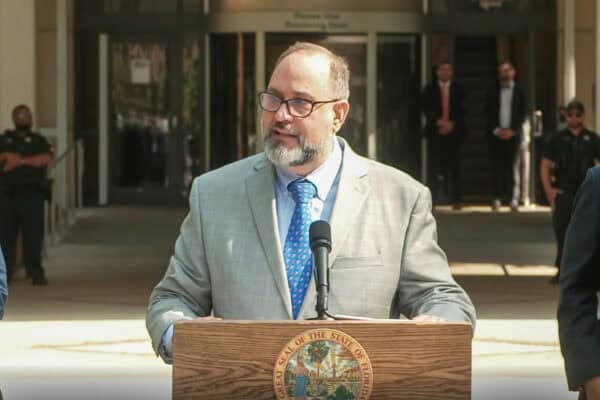State says pronoun law is already ‘clear’ after Orange County schools claims confusion

TALLAHASSEE, Fla. – The Florida Department of Education responded to Orange County Public Schools after the district sent a letter asking for clarification about a new law regarding pronoun usage in schools.
“The statute prohibits people from being forced to refer to others by false pronouns, and it prohibits school district employees from taking an active role in exposing students to these falsities,” Department of Education Commissioner Manny Diaz Jr. said in a letter.
New state law prohibits a school employee from being required as a condition of employment to use another person’s preferred pronoun that does not correspond to that person’s biological sex.
Florida law also states it is public policy in K-12 schools that it is “false” to ascribe to a person a pronoun that does not correspond to such person’s sex.
School Board Chair of Orange County Public Schools Teresa Jacobs said in a letter to the department that they plan to allow employees, contractors and students to “honor parental choice in pronouns if they so choose,” unless the department informed them that “such practice is contrary to law.”
Jacobs said some people have “interpreted” Florida statute to read that because it is “false” to give a person a pronoun that does not correspond to a person’s sex, then an employee, contractor or student using a preferred pronoun is prohibited by law.
However, Diaz said the statute is already “clear” and that the school district is misinterpreting the word “false.”
“There’s a stark difference between something being false and something being prohibited,” Diaz wrote.
“I’m unsure how those two could be confused. In fact, the First Amendment protects a multitude of false statements,” he continued. “I believe clearing up this misinterpretation solves the rest of your problems.”
Diaz said Florida law conveys truth that it is “false” to give someone a pronoun that does not correspond to a person’s sex.
“If that subsection prohibits anything, it simply prohibits public educational institutions like the Orange County School District from proclaiming as true what is false regarding a person’s biological sex,” he said.
Diaz outlined each subsection of the law and what it means:
- Subsection (2) prohibits employees and students from being required to refer to others by pronouns.
- Subsection (3) prevents employees from telling students that the employee uses false pronouns.
- Subsection (4) prevents employees from asking students what pronouns they go by.



